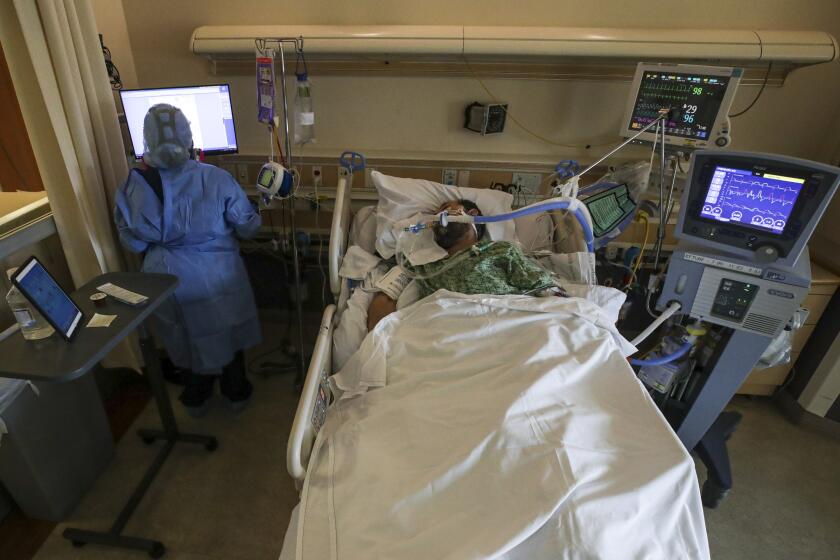Stress, Drug Called Possible Links to Gulf War Ills
A study shows for the first time how prolonged stress and a drug given to protect Persian Gulf War soldiers against chemical warfare each may cause long-term disruptions of memory and learning.
Each creates a long-lasting decrease in mice of acetylcholine, a chemical messenger between brain cells that is important to thinking, the study said.
The discovery could provide two ways to explain the thinking problems reported by some veterans who complain of Gulf War Syndrome.
In a study appearing in today’s issue of the journal Nature, Hermona Soreq and colleagues at the Hebrew University in Jerusalem exposed mice to chemicals that inhibit acetylcholinesterase, an enzyme involved in the processing of acetylcholine.
Other mice were stressed by being forced to swim.
Some behavior the researchers saw in all the mice resembled clinical symptoms, such as depression and impaired thinking, that some people develop after a major stress.
Scientists already know that stress can damage cognition through some hormones and the part of the nervous system that controls involuntary activities. This study showed another route for disrupting memory and thought processes, said Robert M. Sapolsky, a Stanford University neurobiology professor not involved in the study.
He also said it may be an “important but far from conclusive” step in resolving some of the debate about Gulf War Syndrome.
Of the nearly 700,000 soldiers in the Gulf War, 250,000 took at least a single dose of an anti-nerve gas tablet that also inhibits acetylcholinesterase.
Some veterans contend they got sick because of a toxic soup of Iraqi chemical weapons, poisonous fumes from burning oil fields and the experimental pills.
Government officials who doubt the existence of a single “syndrome” point to stress as a source of some physical and psychological problems suffered by the veterans.
Sapolsky said further research is needed. The effects of stress and the drug also might have worked together, he said.



